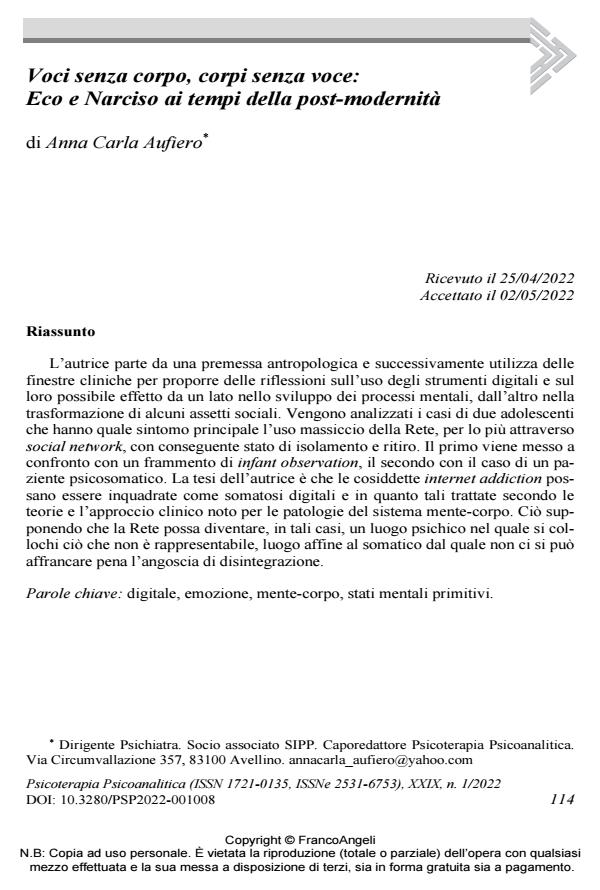Voices without a body, bodies without a voice: Echo and Narcissus at the time of postmodernity
Journal title PSICOTERAPIA PSICOANALITICA
Author/s Anna Carla Aufiero
Publishing Year 2022 Issue 2022/1
Language Italian Pages 14 P. 114-127 File size 178 KB
DOI 10.3280/PSP2022-001008
DOI is like a bar code for intellectual property: to have more infomation
click here
Below, you can see the article first page
If you want to buy this article in PDF format, you can do it, following the instructions to buy download credits

FrancoAngeli is member of Publishers International Linking Association, Inc (PILA), a not-for-profit association which run the CrossRef service enabling links to and from online scholarly content.
The author starts from an anthropological premise and then uses some clinical windows to propose some reflections on the use of digital tools and their possible effect on the one hand in the development of mental processes, on the other in the transformation of some social assets. The cases of two adolescents who have as their main symptom the massive use of the net, mostly through social network, are analyzed, resulting in a state of isolation and withdrawal. The first is compared with a fragment of infant observation, the second with a case of a psychosomatic patient. The autor’s thesis is that the so-called internet addictions can be framed as digital somatosis and treated according to the theories and the clinical approach known for the pathologies of the mind-body system. This assuming that the network can become, in such cases, a psychic place in which what is non representable is placed, a place similar to the somatic from which one cannot free oneself under pain of disintegration.
Keywords: digital, emotion, mind-body, primitive mental states.
Anna Carla Aufiero, Voci senza corpo, corpi senza voce: Eco e Narciso ai tempi della post-modernità in "PSICOTERAPIA PSICOANALITICA" 1/2022, pp 114-127, DOI: 10.3280/PSP2022-001008